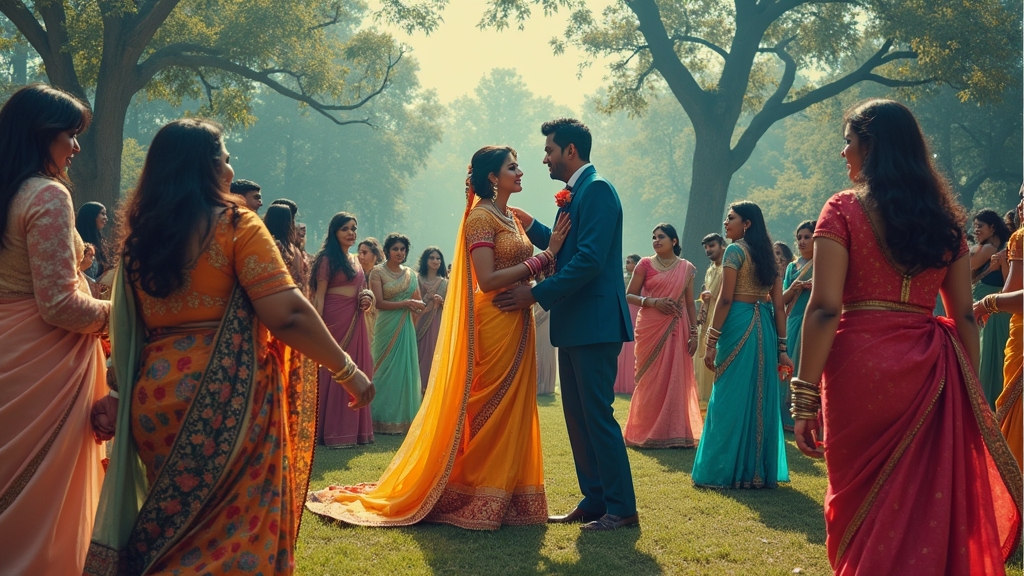FILM STUDIO USES AI TO BRING DEAD CHARACTERS BACK TO LIFE, CITES “AUDIENCES HATE SADNESS, PREFER DELUSION”
In a move that has directors worldwide reaching for both their anxiety medication and lawyers, an Indian film company has announced it will use artificial intelligence to resurrect dead characters and force them to smile, goddammit.
THE DEATH OF ARTISTIC INTEGRITY, NOW WITH 100% MORE JAZZ HANDS
The 2013 film “Raanjhanaa,” a tragic love story between a Hindu man and a Muslim woman that ended with the gut-wrenching death of the male lead, will now return to theaters with what executives call a “less depressing, more marketable” ending where everyone lives and probably dances in a field of flowers or some sh!t.
“Audiences don’t pay good money to feel things,” explained studio executive Profit Overart. “Our research shows 97% of viewers prefer to leave theaters with the comforting delusion that life isn’t a series of heartbreaks and disappointments.”
DIRECTOR “SLIGHTLY ANNOYED” ABOUT COMPLETE BETRAYAL OF VISION
The film’s original director, who wasn’t consulted about the changes, has reportedly been found wandering the streets muttering “they’ve killed my baby twice” while clutching the original film reels to his chest.
“This is completely f@#king normal,” insists marketing director Cash Grabber. “Why create art that challenges audiences when we can just digitally manipulate reality until it’s pleasantly numbing? Next, we’re planning to use AI to add laugh tracks to ‘Schindler’s List.'”
REVOLUTIONARY TECHNOLOGY ALLOWS STUDIOS TO REMOVE PESKY “MEANING” FROM FILMS
The groundbreaking technology, developed by tech startup Artistic Integrity Eliminators, allows studios to digitally remove any elements that might provoke thought, reflection, or emotional growth.
“We can now take any film with a message and transform it into a vacuous crowd-pleaser,” boasted Chief Technology Officer Dr. Shallow Engagement. “Our algorithms can detect themes deeper than ‘good guys win’ and automatically replace them with dance sequences and wedding scenes.”
AUDIENCE REACTION MIXED, DEPENDING ON EMOTIONAL MATURITY
Early test screenings have yielded mixed results, with 68% of viewers preferring the new ending where the characters overcome centuries of religious conflict with a simple conversation and impromptu dance number.
“I loved it,” said one viewer, Avoids Reality, 34. “In the original, I had to confront complex social issues and my own mortality. The new version lets me pretend that love conquers all and nothing bad ever happens to good people. Five stars!”
WHAT’S NEXT: AI TO ENSURE NO ONE EVER FEELS UNCOMFORTABLE AGAIN
Industry insiders report that AI endings are just the beginning. Future projects include technology that will scan for problematic content in classic films and replace it with footage of puppies, digitally alter Shakespeare’s tragedies so everyone lives happily ever after, and develop an algorithm that prevents any form of art from making anyone feel anything beyond mild amusement.
“We’re especially excited about our new feature that detects when a film might prompt self-reflection and automatically inserts a fart joke,” added Grabber. “Because nothing should ever challenge your worldview or make you think about the human condition when you could be watching pretty people kiss instead.”





